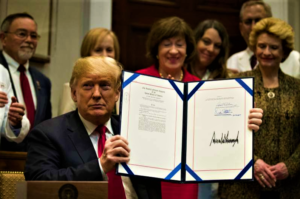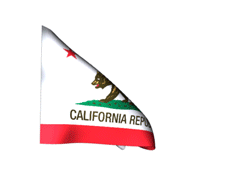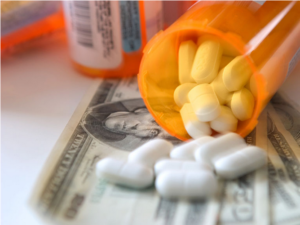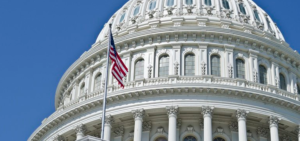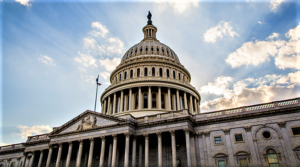- Sen. Sanders, Rep. Cummings introduce bill to lower U.S. drug prices (reuters.com)
U.S. Senator Bernie Sanders and Representative Elijah Cummings introduced legislation...aimed at lowering the cost of prescription drugs for American consumers...
- bill would peg U.S. prescription drug prices to the median price from five countries - Canada, Britain, France, Germany and Japan - where drug costs are typically far lower because of government price controls.
- also allow the U.S. Secretary for Health and Human Services to negotiate prices in Medicare Part D, a program that helps Medicare beneficiaries pay for self-administered medicines like those purchased at drugstores.
- end a ban that keeps Americans from buying medicines at lower prices from Canada and other countries.
- Trump Signs New Laws Aimed at Drug Costs and Battles Democrats on Medicare (nytimes.com)President Trump Signs Bill to Cut Costs on Prescription Drugs - ENN 2018-10-10 (video) (youtube.com)S.2554 - Patient Right to Know Drug Prices Act (congress.gov)S.2553 - Know the Lowest Price Act of 2018 (congress.gov)
President Trump signed bipartisan legislation...that would free pharmacists to tell consumers when they could actually save money by paying the full cash price for prescription drugs rather than using health insurance with large co-payments, deductibles and other out-of-pocket costs...The legislation on gag clauses has been praised by lawmakers in both parties...The legislation...also includes a provision to combat agreements between drug makers that stifle competition by delaying the marketing of lower-cost copycat versions of expensive biotechnology medicines. Such biologic medicines account for a rapidly growing share of drug spending...Under the new law, manufacturers of the original product and the copy, known as a biosimilar, will have to report such agreements to the Federal Trade Commission, which can challenge them as violations of antitrust laws. The agreements are known as pay-for-delay deals because the branded drug company pays a potential competitor to delay entering the market...
- California Sues AbbVie Over Alleged Arthritis Drug Kickbacks (bloomberg.com)EU approves fifth copy of AbbVie's $18 billion drug Humira (reuters.com)
California’s insurance regulator is suing AbbVie Inc., alleging that the pharmaceutical giant gave illegal kickbacks to health-care providers in order to keep patients on its blockbuster rheumatoid arthritis drug Humira...The company “engaged in a far-reaching scheme including both classic kickbacks -- cash, meals, drinks, gifts, trips, and patient referrals -- and more sophisticated ones -- free and valuable professional goods and services to physicians to induce and reward Humira prescriptions...AbbVie paid for registered nurses that it called ambassadors to help doctors with patients who were taking Humira. While the nurses were represented to patients as an extension of the doctor’s office, they were trained to tout the drug while downplaying its risks...The allegations “are without merit,”...The company complies with state and federal laws governing interactions between health-care providers and patients...Its services help patients and “in no way replace or interfere with interactions between patients and their health-care providers...
- Lawmakers push to require price disclosure in DTC drug ads (biopharmadive.com)
The Senate...passed a measure that would provide the Department of Health and Human Services with $1 million to implement proposed rules requiring drugmakers disclose the price of their prescription drugs in direct-to-consumer advertising...Approved as part of a larger spending bill, the bipartisan amendment gives legislative backing for an idea that the Trump administration has pushed as part of its plan to combat rising drug prices...touted the measure as a common-sense step toward greater transparency, it's a proposal likely to generate substantial debate. Drug prices are notoriously opaque, and most patients don't pay the so-called "list price" that such a requirement would likely rely on..."We have FDA and CMS working to examine how to require drug companies to post their list prices in direct-to-consumer advertising. When patients hear about a wonderful new drug, they should know whether it costs $100 or $50,000," said HHS Secretary Alex Azar...The administration's proposal, unsurprisingly, has been met with resistance from drugmakers..."Disclosing list prices in DTC ads would not benefit patients as they are often not the prices insurers pay and are generally not a good indicator of what patients will pay at the pharmacy counter," wrote a spokesperson for PhRMA...
- Pharma sales rep regulations proposal stalls in Philadelphia, but the battle’s not over yet (fiercepharma.com)
Big Pharma got a reprieve in Philadelphia last month, but only temporarily...city council paused its proposal to regulate pharmaceutical sales reps when the bill’s co-sponsors pulled it at the final meeting of the year, but they committed to taking it up again in 2019...Councilman Bill Greenlee and Councilwoman Cindy Bass announced they were pulling the proposal before a vote could be taken...and blamed new opposition on the fact that Big Pharma "has unleashed its money and reach to cause hysteria and spread false information.”...Greenlee accused the industry of “bullying” local businesses “when pharmaceutical companies threatened to pull any future medical conventions from the city because of the ‘perception’ of the legislation.”...The proposed “Pharmaceutical Sales and Marketing Practices” gifts and conduct ordinance would regulate pharma manufacturer reps in the city with measures such as having to register with the city, which includes a fee, and prohibiting any gifts to healthcare providers and office staff...follows efforts from other cities such as Chicago, which passed an ordinance to require sales rep licensing that went into effect in July 2017. Nevada also requires pharma manufacturers to submit a list of sales reps working in the state, report gifts or freebies over $10 and provide a list of drug samples distributed...
- New Law To Force Payments Disclosure by Drug and Device Manufacturers to Non-Physician Providers (ptcommunity.com)
Sunshine Law Will be Expanded to Include Nurse Practitioners, Physician Assistants, Nurse-Midwives, and Others...Congress is expected to finalize within days a new law to expand transparency surrounding payment to non-physician providers. Beginning in 2020, pharmaceutical and medical device companies must disclose payments made to those providers for speaking or consulting, as they must do now with physicians...In many states, nurse practitioners, physician assistants, and other non-physician health professionals account for a substantial number of prescriptions—often including prescription opioids.” The law also applies to clinical nurse specialists, nurse-anesthetists, and nurse-midwives...Without full transparency, pharmaceutical companies can operate under the cover of darkness, possibly using gifts and payments to influence the prescribing practices of medical professionals like nurse practitioners and physician assistants...
- California May Pass Legislation to Regulate PBMs (policymed.com)
We have previously written about pharmacy benefit managers and the way states are trying to regulate them through legislation and other means. With just one week left of the California session, it is possible that the state will become the most recent to regulate PBMs...California Assembly Bill 315, simply titled Pharmacy benefit management...was recently...revived with an amendment on August 20, 2018...The legislation, if passed, would require PBMs to be licensed by the California Department of Managed Health Care; require that a PBM exercise a duty of good faith and fair dealing in the performance of its contractual duties to a purchaser, and would require the PBM to disclose to a purchaser any conflict of interest that would interfere with the discharge of that duty; require a PBM to periodically disclose to a purchaser, at their request, certain information such as drug acquisition cost, rebates received from pharmaceutical manufacturers, and rates negotiated with pharmacies; require PBMs to notify pharmacy network providers of certain material contract changes at least 30 days before those changes take effect; prohibit PBMs from including in a contract with a pharmacy network provider provisions that prohibit the provider from informing consumers of alternative medication options or from dispensing a certain amount of prescribed medication; and would also create a toll-free provider line for pharmacies to report any PBMs who are in violation of the law.
- Four Democrats Introduce Senate Bill to Allow HHS to Block “Excessive” Drug Price Increases (centerforbiosimilars.com)S.3754 - A bill to prohibit price gouging in the sale of drugs. (congress.gov)
...Senators Richard Blumenthal, D-Connecticut, Kamala Harris, D-California, Amy Klobuchar, D-Minnesota, and Jeff Merkley, D-Oregon, introduced a bill on the Senate floor, S. 3754, that would allow HHS to block drug price increases that it deems as “excessive.”...The bill, dubbed “A bill to prohibit price gouging in the sale of drugs,” is just the latest in a series of actions that Congressmen and the government alike have taken to address high drug prices.
- Senate passes sweeping opioid response bill with eRx, EHR, PDMP provisions (healthcareitnews.com)
The landmark legislation would disburse nearly $8 billion to HHS, CMS, CDC and state governments, with big goals for population health, care coordination and patient safety...The Opioid Crisis Response Act of 2018...It's a massive bill comprising a wide array of proposals drawn from five Senate committees, and has many implications for the use and funding of health IT...It contains funding for stopping the flow of illegal opioids from other countries, and for supporting local programs for prevention, treatment and recovery...spur research and development of new non-addictive painkillers and stem "doctor shopping" by boosting prescription drug monitoring programs...has funds to give behavioral and mental health providers the tools they need to offer treatment and recovery – including potential electronic health record incentives – and for hospitals to better care for infants with neonatal abstinence syndrome.
- House bill seeks to create nationwide Prescription Safety Alert System (healthdatamanagement.com)
Bipartisan congressional legislation has been introduced to create a nationwide Prescription Safety Alert System to enable pharmacists to better protect patients from opioid overuse...The Analyzing and Leveraging Existing Rx Transactions Act, introduced...by Reps. Tom MacArthur, Ann Kuster and Barbara Comstock, would require the Department of Health and Human Services to work with the private sector to establish a system that analyzes the transaction data that pharmacists and payers—such as health insurers and Medicare— generate when prescriptions are filled...“We absolutely have to get smarter about how we use technology and data analysis to fight this crisis,”...“By giving pharmacists, insurance companies, and programs like Medicare a new tool to understand the data they already have, we can help prevent further harm.”...the data analysis would provide real-time feedback to pharmacists at the point of sale and would be included in their normal workflow...“A pharmacist will receive an alert that someone might be at risk of overuse based on their prescription history, or might be doctor-shopping to feed their addiction,”...“Instead of filling that unnecessary prescription, pharmacists will have an extra tool to detect and prevent these dangers.”...


